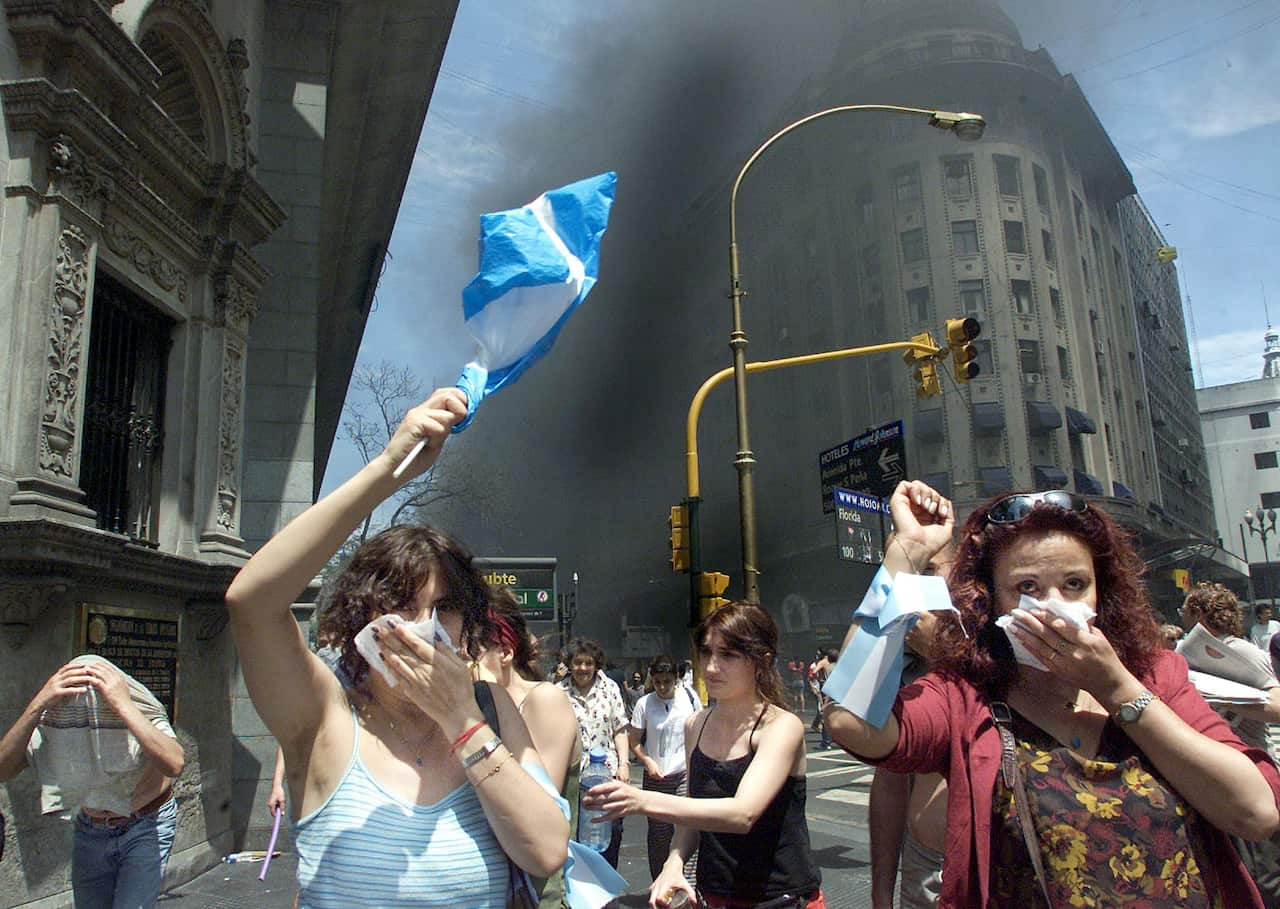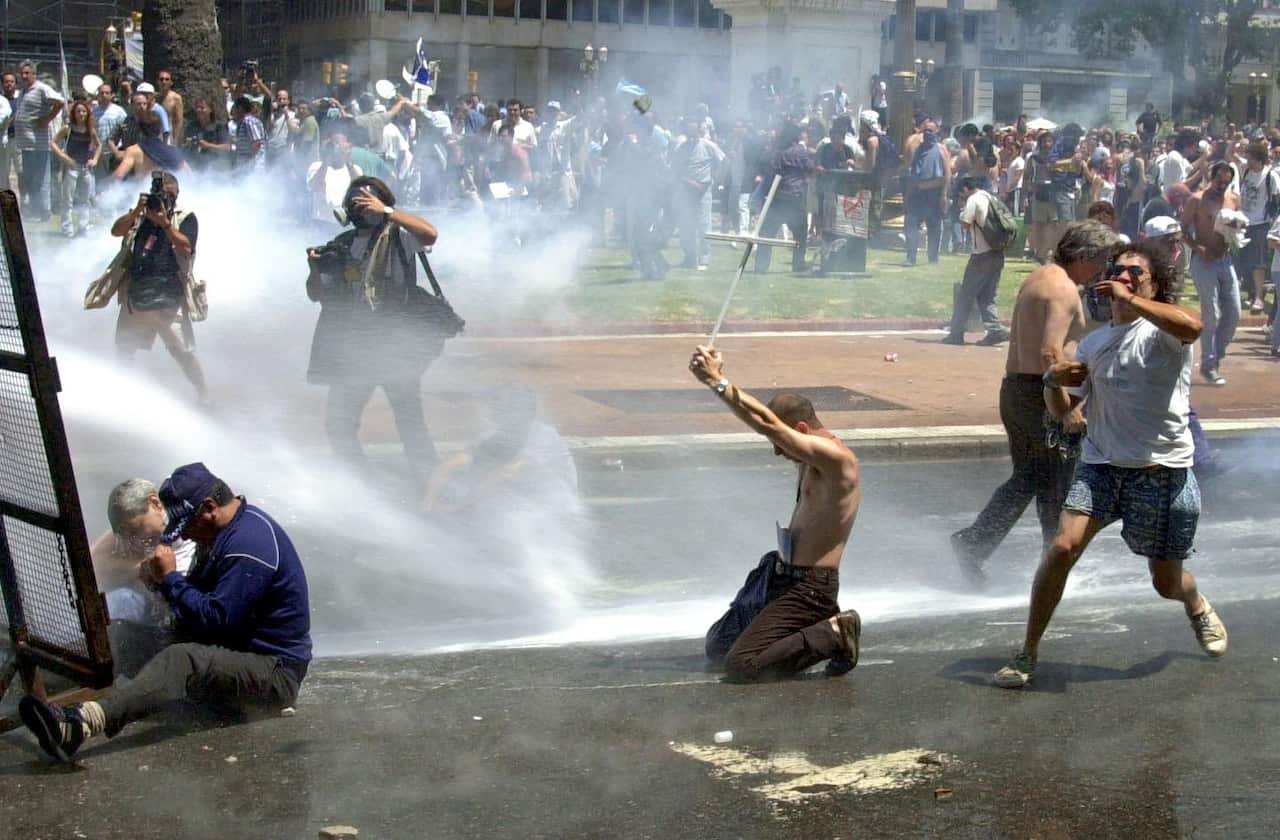What caused Argentina’s latest default?
The country's second default in 13 years is about technicalities caused by a decades-long legal dispute with its creditors.
It was triggered when Argentina missed an interest repayment due on debt accrued from its 2001 default. As a result of missing the latest $539 million repayment bill, the country has technically defaulted on the entire sum of $29 billion it owes to international creditors.
The June 30 repayment deadline had been extended by a 30-day grace period that ended on July 30, but the country was unable to pay despite having the funds due to impact of a 2012 US court decision.
Argentina's second debt default in 13 years no surprise: UNSW economist Tim Harcourt
The February 2012, US judge Thomas Griesa ruled that Argentina could not pay its first set of creditors without also paying the holdout investors, a group of US hedge funds led by billionaire Paul Singer's NML Capital. The case was brought by the group of US hedge funds under terms outlined in Argentina’s bond contracts, which included an agreement from Argentina to resolve issues on repayments in the New York Courts.
In his decision, Judge Griesa cited a little-used and controversial clause on equal treatment called "pari passu". Years of appeals and injunctions have failed to overturn the decision.
The ruling makes it illegal for Argentina to pay the $539 million repayment without also paying the holdout creditors. As a result of the decision, holdouts can sue for full payment that could result in other creditors being less amendable to accepting reduced payments.
Why does this latest default by Argentina matter?
This is the eighth time in Argentina’s history that the country has defaulted.
“I think they [Argentinians] are reasonably used to economic crises now, so unfortunately there is a sense of normalcy around this stability,” UNSW economist Tim Harcourt told SBS.
But this latest debt default is unusual as it sets a precedent on the use of the pari passu clause with implications for how debt restructuring is done internationally.
The Argentinian government has contended that the US court ruling using the pari passu clause allows US "vulture funds" to make "obscene profits” by taking advantage of the country’s debt.
Cabinet chief minister Jorge Capitanisch lashed out at both the US hedge funds and the court mediator, accusing the latter of “incompetence”.
“To say we are in default is absurd trickery,” the minister said. “…If the judicial system is invaded by the vulture funds, then what kind of justice are you talking about?”
Determinations on losses worn by the creditors could influence future debt restructuring following the drawn-out process with Greece.
What has been the impact in Argentina and globally?
Argentine bonds are down 7 per cent, while Argentina’s stock market took a nosedive of 8.4 percent on the back of the announcement by ratings agency Fitch and Standard and Poors that the country had entered into default.
Global stock markets followed suit. The Standard & Poor's 500 hit a six-week low, after falling 2 per cent to 1930.67, the Dow erased its 2014 gains sinking by 317.06 points to 16,563.30; and the Nasdaq lost 2.1 per cent to 4369.77.
Sydney University's Dr Adrian Hearn speaks to Biwa Kwan about the implications of Argentina's latest debt default
Is the contagion limited to Argentina?
Despite the immediate negative reaction on global stock markets, UNSW economist Tim Harcourt says the ongoing impacts are unlikely to hit the lows of the country’s previous default in 2001.
In that year, unemployment skyrocketed by 20 per cent sparking deadly riots as accounts were frozen to end a run on the banks. All this catapulted the country into deep recession, officially at 12 per cent but unofficially at 30 per cent.

Economist Harcourt says we are unlikely to see a repeat of the 2001 deadly clashes.
“I think it was a shock – I was in Argentina in 2002 at the time of the worst of those clashes and most Argentines were quite shocked because Argentina didn’t have a particularly violent civil history, although they had dictatorships," he said.
“I don’t think you’ll get the shock of what you had in 2002 but it is pretty tough for the average Argentine trying to make a living right now.”

He says the impacts of the debt default are likely to be contained within the country and to some of Argentina’s regional economic partners.
“It will be tough for Uruguay in particular. Brazil is probably big enough to withstand it, so Paraguay and Uruguay will be impacted. But I don’t think the global consequences are as significant.
"I don’t think Argentina is the same as Greece for instance. So I think it will be largely contained.
“I think the most important thing is that Argentina take control of its own destiny and stop blaming the IMF for all of its problems.”
What happens next?
Negotiations are still continuing between creditors and banks on Argentina’s debt repayments, with a US court hearing on the matter scheduled for this Saturday 1am AEST (3pm Friday GMT).
Citigroup and other banks are in talks to buy Argentina’s defaulted debt from US hedge fund Elliott Management, paving the way for a resumption of payments, Bloomberg News reports.
Other analysts say sanctions against Russia pose a greater threat to the stability of global financial markets.
Mr Harcourt says there is a glimmer of hope that Argentina can pull itself out of this latest debt crisis.
“It seems pretty tough right now, but Argentina can [turn its fortunes around]. Argentina still has wealthy natural resources and it still does have strong human capital,” he said.
“They may not see it at the moment, but they can come back and restore the position they once used to have in the world economy.”

